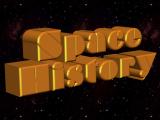
Space History for December 28
If you are not already a subscriber, you are welcome to enter your email address here to sign up to receive the Space History newsletter on a daily basis. Under no circumstances will we release your legitimate email address entered here to outside persons or organizations, and it will only be used for mailing the specific information you have requested.
| Enter your email address here: |
Unsubscribe instructions are included in every newsletter issue in case you decide you no longer wish to receive it.
Note: We record the IP address from which subscriptions are entered to help prevent SPAM abuses.
Race To Space
Someone will win the prize...
... but at what cost?
Visit RaceToSpaceProject.com
to find out more!
1452
Died, Albert Pigge (Pighius), pontifical theologist, astronomer
ref: en.wikipedia.org
1663
Died, Francesco M. Grimaldi, mathematician, physicist (light defraction)
ref: www.faculty.fairfield.edu
1882
Born, Arthur Eddington, astronomer and physicist
Sir Arthur Stanley Eddington (28 December 1882 - 22 November 1944) was arguably the most important astrophysicist from the early twentieth century. The Eddington limit, the natural limit to the luminosity that can be radiated by accretion onto a compact object, is named in his honor. He is also famous for his work regarding the Theory of Relativity. Eddington wrote an article, "Report on the relativity theory of gravitation," which announced Einstein's theory of general relativity to the English-speaking world. (Because of World War I, new developments in German science were not well known in England at the time.)
ref: en.wikipedia.org
1894
A. Charlois discovered asteroid #398 Admete.
1896
A. Charlois discovered asteroid #425 Cornelia.
1903
Born, John Von Neumann, mathematician, quantum physicist (Bocher Award 1938), first described von Neumann computer architectural model
John von Neumann (28 December 1903 - 8 February 1957) was a Hungarian-American mathematician who made important contributions in quantum physics, set theory, computer science, economics and virtually all mathematical fields.
Among his other efforts, von Neumann proved that the most effective way large scale mining operations (such as mining an entire moon or asteroid) can be accomplished is through the use of self-replicating machines, to take advantage of the exponential growth of such mechanisms.
He also engaged in exploration of problems in the field of numerical hydrodynamics. With R. D. Richtmyer he developed an algorithm defining artificial viscosity which proved essential to understanding many kinds of shock waves. Much of current astrophysics, and recent developments in jet and rocket engines, was based on that work: The problem was that when using computers to solve hydrodynamic or aerodynamic problems, too many computational grid points are needed at regions of sharp discontinuity (e.g., shock waves). Artificial viscosity is a "mathematical trick" to slightly smooth the shock transition without sacrificing basic physics, greatly reducing the required computational capacity.
ref: en.wikipedia.org
1929
Born, Maarten Schmidt (at Groningen, The Netherlands), Dutch/US astronomer (quasars)
ref: en.wikipedia.org
1940
Y. Vaisala discovered asteroids #1659 Punkaharju, #1678 Hveen and #2962.
1942
K. Reinmuth discovered asteroid #2181 Fogelin.
1969
Born, Linus Torvalds (at Helsinki, Finland), Finnish-American software engineer, creator and "benevolent dictator" of the Linux kernel
ref: en.wikipedia.org
1973
As Comet Kohoutek reached perihelion, Dr. Lubos Kohoutek talked live with NASA's Skylab 4 crew observing the comet.
ref: history.nasa.gov
1975
Paul Wild discovered asteroid #2087 Kochera, named after Swiss surgeon and Nobel laureate Theodor Kocher.
1983
A. Mrkos discovered asteroid #3003.
1989
Died, Hermann Oberth, rocket pioneer, one of the founding fathers of rocketry and astronautics
ref: en.wikipedia.org
2021
Died (complications of Parkinson's disease), M[ichael] Richard Uram "Rich" Clifford (at North Myrtle Beach, South Carolina, USA), Lt Colonel US Army, NASA mission specialist astronaut (STS 53, STS 59, STS 76; nearly 27d 18.5h total time in spaceflight)
ref: en.wikipedia.org
We are going to run out of oil!
Visit SpacePowerNow.org
to help fix the problem.
SpacePowerNow.org - For Human Survival
Please help support our efforts by shopping from our sponsors.
This newsletter and its contents are Copyright © 2006-2026 by The L5 Development Group. All rights reserved. - Publication, in part or in whole, requires previous written permission. - Academic or personal-use citations must refer to http://L5DGbeta.com as their source. Thank you for your cooperation.





